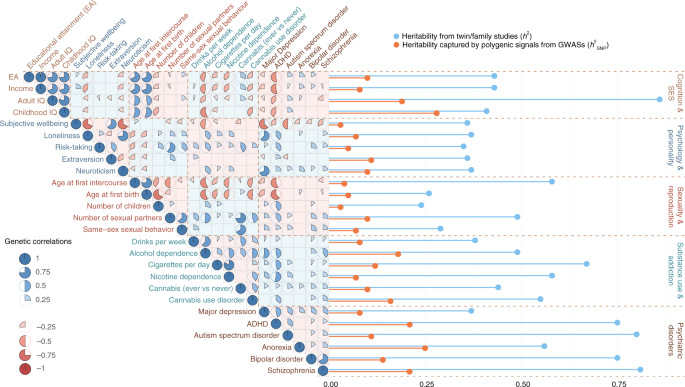Introduction
In the contemporary world, genome-wide association studies (GWAS) have increasingly become a crucial research tool in genetics. GWAS research examines relations between genetic variations and traits or diseases in sizable populations. Researchers can identify potential therapies or treatments by examining how Deoxyribonucleic Acid (DNA) variants are connected to various outcomes. Through the power of contemporary computing and data science techniques, GWAS has emerged as one of the most effective tools for scientists to explore complex genetic relationships. This discussion will examine GWAS’s advantages, limitations, and key components.

Advantages and Limitations of GWAS
One of the reasons they are preferred is that GWAS studies can examine larger sets of data and populations with high accuracy and sensitivity. This makes their findings much more reliable than other approaches (Mills and Rahal, 2019, p. 12). GWAS can be used to study any organism since it is not subjected to crop or species restrictions (Liu and Yan, 2019). This makes GWAS a vital tool in medical research and agricultural breeding programs (O’Connor et al., 2020, p. 11; Zhang et al., 2021, p. 21). These benefits make GWAS one of the most effective tools for determining genetic associations.
GWAS are also susceptible to several drawbacks. The inability of GWAS to explain the underlying mechanisms by which genes may affect particular traits or diseases is one of its limitations (Abdellaoui and Verweij, 2021). Additionally, because GWAS studies rely on already-existing datasets, they are restricted to the information currently available in those databases (Bakker et al., 2020). This implies that rarer variants, or those found in only a small portion of the population, might not be able to be studied. GWAS studies frequently fail to pinpoint the causal links connecting genetic variations and particular outcomes (Lind, 2019, p. 508). Therefore, more studies are necessary to comprehend how various genetic variants interact with one another to affect specific traits or diseases.
The Key Components of a GWAS
GWAS is a game-changing tool in the quest to understand the genetic basis of diseases and traits. Through its longitudinal approach, GWAS studies are more reliable than other methods when detecting real associations – making them an invaluable asset in deciphering the complex genetic landscape in diseases and traits (Mills and Rahal, 2019, p.48; Liu and Yan, 2019, p.434; O’Connor et al., 2020, p. 286; Zhang et al., 2021, p. 23). Over the years since its inception, GWAS has revolutionized our understanding of the genetic basis of many conditions, providing invaluable insight into how they progress.
Conclusion
GWAS has emerged as a powerful tool for exploring the complex genetic interactions that influence disease and uncovering associations between genetic variations and illnesses. Fueled by its ability to analyze vast amounts of data, GWAS has become an invaluable resource for providing reliable insights into these fascinating connections. Despite some limitations, such as being unable to explain underlying mechanisms or identify causal relationships, GWAS is an instrumental approach for unraveling the intricate web of genetics that affects health. This technology can be used in medical research and agricultural breeding programs to understand DNA traits better.
Reference List
Abdellaoui, A. and Verweij, K.J.H. (2021) Dissecting polygenic signals from genome-wide association studies on human behaviour, Nature News. Nature Publishing Group. Web.
Bakker, M.K. et al. (2020) Genome-wide association study of intracranial aneurysms identifies 17 risk loci and genetic overlap with clinical risk factors, Nature News. Nature Publishing Group. Web.
Lind, L. (2019) ‘Genome-wide association study of the metabolic syndrome in UK Biobank,’ Metabolic Syndrome and Related Disorders, 17(10), pp. 505–511. Web.
Liu, H.-J. and Yan, J. (2019) “Crop genome-wide association study: a harvest of biological relevance,” The Plant Journal, 97(1), pp. 8–18. Web.
Mills, M.C. and Rahal, C. (2019) A scientometric review of genome-wide association studies, Nature News. Nature Publishing Group. Web.
O’Connor, K. et al. (2020) “Genome-wide association studies for yield component traits in a macadamia breeding population,” BMC Genomics, 21(1). Web.
Zhang, M.-Y. et al. (2021) Genome-wide association studies provide insights into the genetic determination of fruit traits of pear, Nature News. Nature Publishing Group. Web.